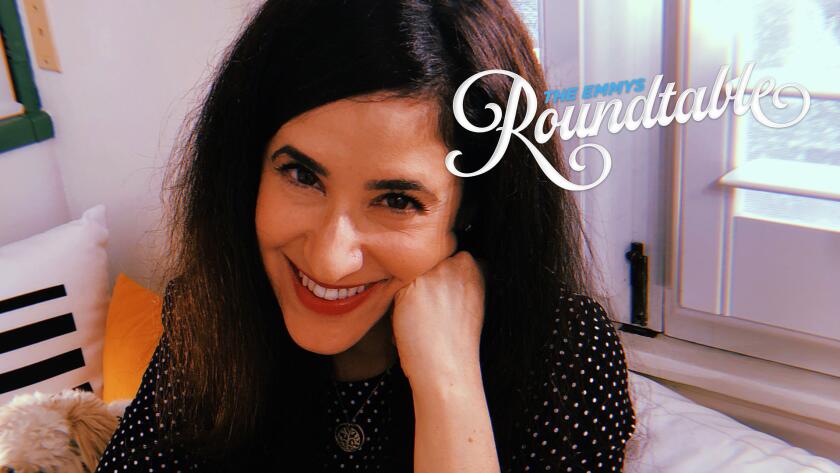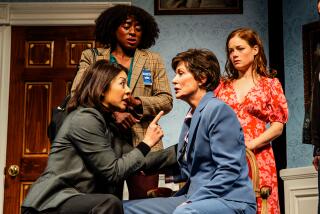‘Mrs. America’ centers on anti-feminist Phyllis Schlafly. Here’s why
The story of “Mrs. America,” a feminist series helmed by women that centers on the second wave of feminism, is largely told from the perspective of an anti-feminist.
For the Los Angeles Times’ recent Envelope Showrunners Roundtable discussion, the creator of the hit Hulu and FX drama, Dahvi Waller, explained why she decided to focus much of the plot on Phyllis Schlafly (Cate Blanchett), a conservative activist and prominent opponent of the Equal Rights Amendment.
“I wanted to create a show where all the women are very complicated and complex and messy,” Waller said during the conversation. “The backlash just seemed like a more unexpected way in than through the social change movement. At the same time, I wanted the show to have all the voices of the feminist leaders as well and really give them their due.”
On the pro-ERA side, “Mrs. America” features Rose Byrne as Gloria Steinem, Uzo Aduba as Shirley Chisholm, Tracey Ullman as Betty Friedan, Margo Martindale as Bella Abzug and Elizabeth Banks as Jill Ruckelshaus. Over nine episodes, the feminists butt heads with Schlafly’s posse — and with one another — as they fight for legalized gender equality.
“I was interested in giving a fuller context to this time period,” Waller said. “I studied the women’s movement and didn’t really understand why it lost momentum after 1980. Once I started learning about Phyllis Schlafly and the Stop ERA movement, I really started to understand the patterns of how society progresses and the inevitable backlashes.
“That really was probably what drove me to explore this topic. As we got past the 2016 election, I felt more of a drive to get this message out. The central question for me was, sisterhood is powerful, but is it transcendent? Does it transcend tribalism? Does it transcend sexuality or other ties?”
“Mrs. America” depicts the battle over the Equal Rights Amendment in the 1970s. We’re fact-checking its historical accuracy, episode by episode.
Waller also discussed the balancing act of making a period piece that is both historically accurate and interesting to modern viewers. As illuminated in The Times’ weekly fact-checks, “Mrs. America” relies on a mix of events and characters — both real and imagined — to deliver a compelling narrative.
“I can’t think of a more boring-sounding thing than a constitutional amendment. So we were like, how do we possibly make this not didactic?” Waller said. “We laid out the events that happened. This is the information, now where’s the drama? Where’s the personal story?
“We really focused on telling the story like we would tell a fictional story — what are the character arcs? What are the relationship dynamics? What are their journeys? By focusing [that way] we were staying away from the lecturing and the speechifying. And then I also think we trust our audience that if they need to stop and Google something, they will.”
You can read Times culture columnist LZ Granderson’s full roundtable interview with Waller, Steven Canals (“Pose”), Kerry Ehrin (“The Morning Show”), Susannah Grant (“Unbelievable”), Dan Levy (“Schitt’s Creek”) and Chuck Lorre (“The Kominsky Method”) here.
More to Read
The complete guide to home viewing
Get Screen Gab for everything about the TV shows and streaming movies everyone’s talking about.
You may occasionally receive promotional content from the Los Angeles Times.








